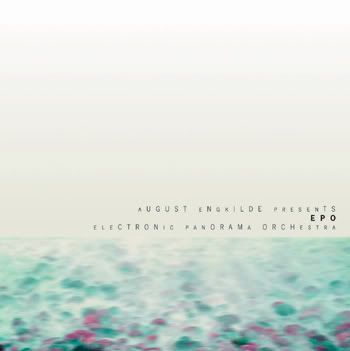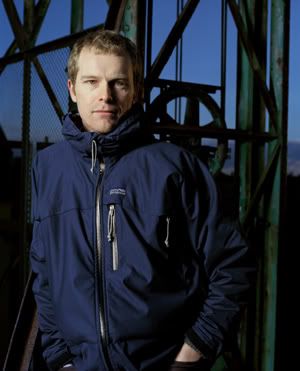 |
|
| QUOTE |
| EPO (Electronic Panorama Orchestra) is an electronic/acoustic music project under direction of August Engkilde. The style is Experimental in the field of jazz, funk, hiphop and electro. The music is composed by August Engkilde and EPO, sometimes in collaboration with invited guests. Besides the basic group, the musicians in the band size will variate depending on the time, place and possible guest musicians. This variation of the set-up do invite to a lot of improvisation between the prepared but very modular electronic, computer-based material and the "acoustic" musicians. Electronic music and what where said about it in 1970. The word electronic music is on many musicians lips these days and even though it's not a new word or a new genre most people are not sure what it is. In a booklet from a 4 vinyl box called "Electronic Panorama" from 1970 David Rissin writes following about the development of Electronic music: "Since 1958 Combined works of tape and instruments have been appearing, and one may now be present at the development of new musical forms, where the electro-acoustic transformation of the sounds is carried out on the spot and perhaps even provides the subjects of improvisation!", In the same booklet they off course also mention Pierre Schaeffer and Pierre Henry's "Music Concréte" from 1948. The subject of improvisation between tape and instruments has very much been forgotten in many ao called electronic bands, but it is a very important part of August Engkilde's EPO project, which also makes the music much more alive and fun to watch and listen to during live concerts. |
Vocals: Frida Asmussen (tracks: 1,3,6,8)
Guitar & Vocal: Joakim Froystein
Trumpet: Hendrik Jorgensen
Bass Flute & Soprano Saxophone: Fredrik Lundin
Percussion: Jose Alphonso
Percussion Samples: Rune Olesen
All Other Instruments
Backing Vocal And Programming: August Engkilde

Reviews: One Final Note
The first release on Scape's 'pop' sublabel comes to us from longtime Senor Coconut band member and Atom Heart affiliate August Engkilde. After his infamous "Police Beat Box" set for Cheap, August spent some time hanging out in Havana and extending his already quite formidable knowledge of string instruments in time for his joyous coconut sets and the forming of this loose collective of musicians - EPO. Although the overall sound is based on jazz, EPO expand and extend this aural fundament with irreverent snippets of hiphop, dub, latin and funk. Subtle electronics determine the tracks' structures: most of the time, it might just be a gentle, almost indiscernible pulse ticking away in the background, swathed in a warm double bass, brass section and guitar. Then again, synthesizer and samples might fight their way to the surface and decide to lead the expedition for a while. Last, but by no means least, there is the voice of Frida Asmussen, leaving no room for uncertainty why Scape had to initiate a pop label just for this project: her characteristic, precisely accentuated vocals rush into wonderful choruses to warm the heart and open the sound. EPO blend elements of different styles and cultures into a cohesive whole, treating all of their influences with the greatest respect. Analogue sound generation and electronic foundation are so tightly entwined that the layers become almost inseparable. Very nice indeed.
-------------------------------------------------------------------------------
There must be a reason why Northern Europe continues to lead the pack in terms of electro-jazz-pop hybrids. I don't know what the reason is. Be that as it may, Danish bassist/keyboardist/programmer August Engkilde and his band Electronic Panorama Orchestra do nothing to damage the region's track record with this debut album. Yes, it's loungey, but almost every track contains details and twists and turns that elevate the album from wallpaper to ear candy, with the jazz element consisting mainly from a few constrained instrumental solos here and there. Those looking for relaxed but not soporific electronic pop with dashes of jazz and exotica should not be disappointed. The beats are highly detailed and often shifting. Engkilde takes bleeps, bloops, scratches, glitches, and whirrs (not to mention a few good, old-fashioned man-made percussion sounds) and stitches them into almost kaleidoscopic beats. While these generally fall into elastic yet easily identifiable patterns, the producer pushes them a little bit on the last two tracks: On "Sing the Tom-Tom", the pulse is nearly overwhelmed by the density of the beat's skittering upper layers, while on "Goodnight Little E." the combination of pulsing bass underneath a scratchy ping evokes something delicate and barely-formed, like a fetus' heart beating through still-translucent skin. Electronic manipulation bubbles up to other instruments: On "I Do", the voice is filtered to sound like a long-distance phone call, or as if coming from an old 78, and, more subtly, Hendrik Jorgensen's trumpet solo on "Papergirl" is made to stutter. Engkilde has studied with his well-known countryman NHOP, but also with Israel Cachaito Lopez, which would explain the recurrent Cuban elements. The album opener, for example, introduces an unexpected Cuban trumpet section in its third verse, in "Talk to Doua" a Cuban voice gives focus to the hazy atmosphere, and "The Tres Players Story" [sic] sets the traditional instrument into an electro/hip-hop loop. Other cultural appropriations are drawn into Engkilde's nexus: Quietly bluesy or sliding guitars, a twittering bird, and an African guitar on the aptly named "The Bird & The Guitar". Even the 80s club sound of "Sing the Tom-Tom" feels faintly exotic in this context. While the album's sound sources are electronic, the construction of the tracks are poppish, especially the four on which singer Frida Asmussen appears. "Little Mary & Old George" adds an element at each new verse, "Papergirl" could almost be a Beck song, and "Sing the Tom-Tom"'s horn interventions sound like early hip-hop samples. Asmussen's combination of fragile voice, accented speech, and naïve and somewhat stilted lyrics is endearing yet puzzling: When she says "Darling okay I can do all the laundry/'Cos now I am your wife" in "The Marriage of Hat & Boots" or describes the daily activities of the paper girl ("cartoon stripes" is a particularly memorable slip of the tongue), it is difficult to assess possible subtexts.
Track Title
1 Little Mary & Old George (4:48)
2 Talk To Odua (3:40)
3 I Do (5:30)
4 Continental Travelling (6:30)
5 The Tres Players Story (4:24)
6 The Marriage Of Hat & Boots (4:04)
7 The Bird & The Guitar (2:58)
8 Papergirl (6:01)
9 Sing The Tom-Tom (6:24)
10 Goodnight Little E. (5:24)
Commenti
Wonderful project, nothing to add, a must-have for all electronica lovers: both Jazzy and Experimental lovers.
P.S.
I'm sorry for covers, be patient, my scanner in broken, i'll buy another one